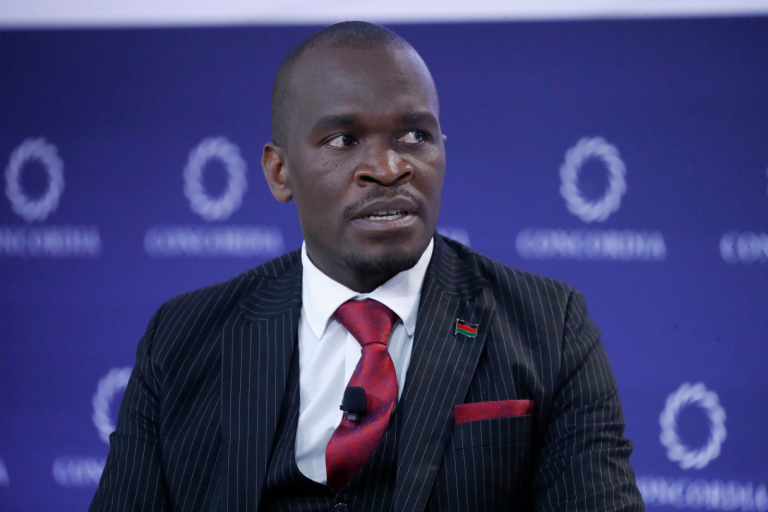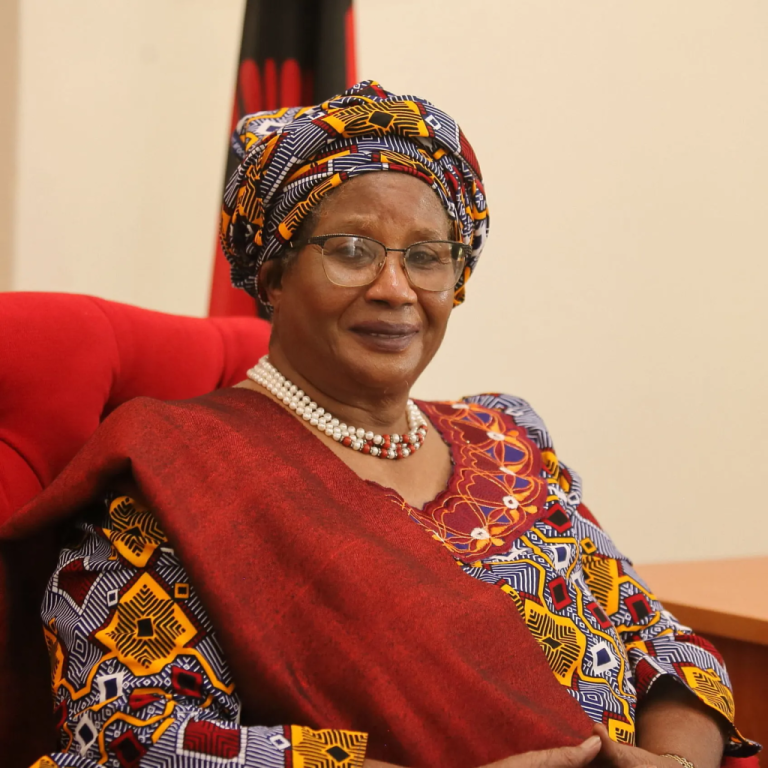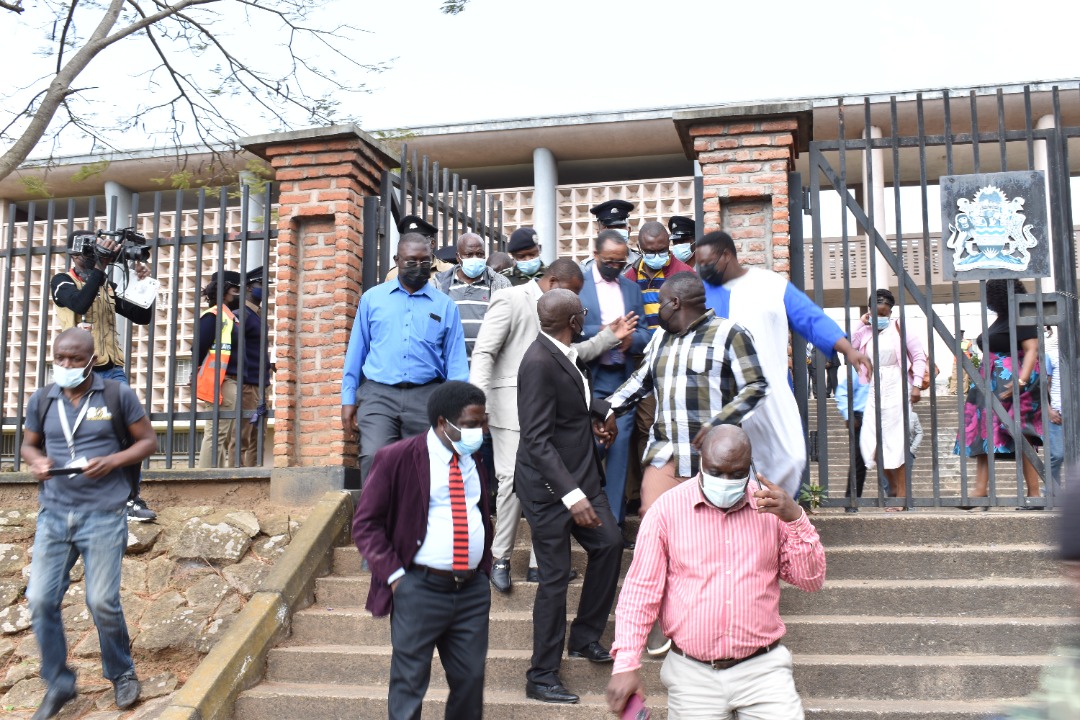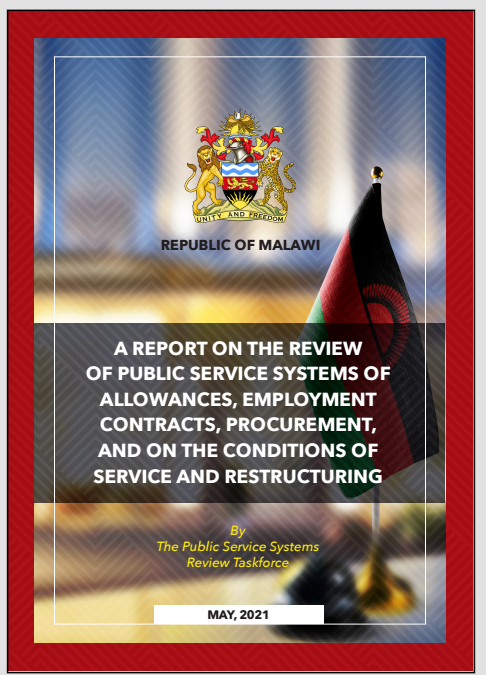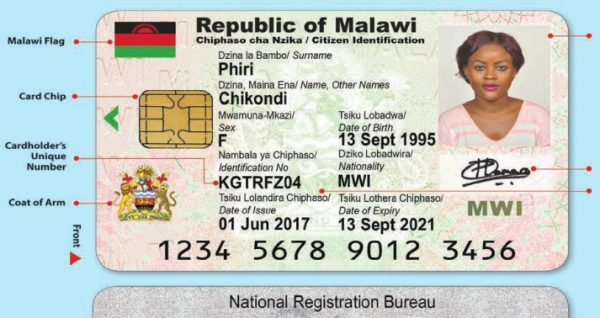BY MERCY CHAGUNDA
The Malawi government could be ordered by the African Court to pay over a whopping K1.4 trillion kwacha in a default judgment in a long-standing legal saga involving a foreign mobile telecommunications firm, Malawi Mobile Limited (MML) and Malawi Communications Regulatory Authority (MACRA), after government lawyers reportedly–repeatedly-failed to respond to court summons.
The application for the default judgment in the matter by Patroklos Tsaperas, the owner of Malawi Mobile Limited (MML), comes amid a protracted legal battle that has seen the two parties fight within the Malawi courts, then Comesa courts and now at the African Union.
The dispute comes from a decision by MACRA in 2005 to terminate the MML licence to operate mobile telecommunication services in the country, awarded in 2002.
A ruling by the High Court judge Frank Kapanda ordered MACRA to pay Malawi Mobile $132 million in compensation for the decision. However, three Supreme Court judges later sided with MACRA and quashed the ruling. The next stage of the legal tussle was the Comesa court, where again, the Malawi government triumphed, forcing the MML to take the matter to the continental court, the African Union Court.
According to documents seen by the PIJ, MML appears to have almost hit the jackpot when Malawi government lawyers– representing the Attorney General and MACRA–failed to challenge the MML application at African Court, prompting the company’s lawyers to file for a default judgment.
Tsaperas wants compensation of $133 700 000.00, a reimbursement of the licence fee paid to MACRA amounting to $400, 000.00 and reimbursement of ‘inevitable expenditure costs such as legal fees in the African Court and domestic courts plus transport and other expenses amounting to $1,200, 000.
According to the documents, despite the vast sums involved, the government lawyers failed to file or serve a response within a prescribed time despite being reminded on a number of occasions.
The court’s Registrar issued a notice of acknowledgement of receipt of an application under rule 40 (7) dated 18th November 2022. On 23rd March, the registrar’s office notified the applicant that the state was given ninety days to file its application, which lapsed on April 28th this year.
“I instructed my lawyers to apply for a Default Judgment, and by the letter dated 16th May 2023, they informed the Honourable Registrar of my next course of action. The letter was electronically conveyed to the Honourable Registrar and the Attorney General of the Respondent State on 16th May 2023 at about 12.13 pm. They are shown and produced a screenshot marked ‘PT6’ and exhibited hereto,” reads part of the submission.
However, following up on whether the government submitted its responses in May this year through an email indicated that the defendant has not yet sent its responses as mandated.
“I instructed lawyers to apply for default judgment, and by letter dated 16th 2023, they informed the Honourable Registrar of my next course of action. The letter was electronically conveyed to the Honourable Registrar and Attorney General of the respondent state on 16th May at about 12:13 pm. There are now copies of the email’s screenshot thereof marked ‘PT16’ and exhibited hereto.”
“The respondent state has neither filed in the African Court Registry nor served my legal counsel with a response on time or at all. Accordingly, by law, judgment by default must be entered in favour of the applicant,” reads part of the statement.
When contacted for comment, Attorney General Thabo Nyirenda played down the likelihood of a default judgment, saying the government has responded to the court summons.
“We responded, the problem might be that it goes through Foreign Affairs. We don’t do that directly,” said Nyirenda.
(PIJ did not see or was not shown any documents confirming the position of the Attorney General.)
Lawyer for Tsaperas, David Kanyenda
Tsaperas’ Malawian lawyer, David Kanyenda, refused to comment on the matter when contacted for comment, saying he had no instructions to speak to the media from his client.
“In the meantime, I lack the mandate to grant an interview to media outlets in connection to the matter. If and when I receive instructions from my clients to do so, I’ll readily reply to your inquiries. In any event, the matter is subjudice, and I am therefore ethically precluded from offering extensive commentaries about it,” said Kanyenda.
In 2005, MML sued the Malawian government and its agency, the Malawi Communication Regulatory Authority (MACRA), for revoking its licence on the grounds that the company had failed to fulfil its obligations under an agreement entered between the parties in 2002.
The case has been in and out courts for almost two decades since Macra cancelled a contract with the company. In 2018, the Malawi government thought it had seen the last case when a panel of four judges ruled that it had agreed with Malawi’s position that the court had no jurisdiction.
But in a fresh ruling following an appeal on the matter, the court, through a panel of seven judges, has granted a new lease of life to the MML case, ordering that MML be allowed to amend parts of its earlier arguments that the court rejected.
Read the court documents accessed by the PIJ here: file:///C:/Users/HP/Downloads/Application_to_Enter_Judgment_in_Default_Appl_007_2022_Patroklos.pdf
…………………………………………………………………………………………………………

